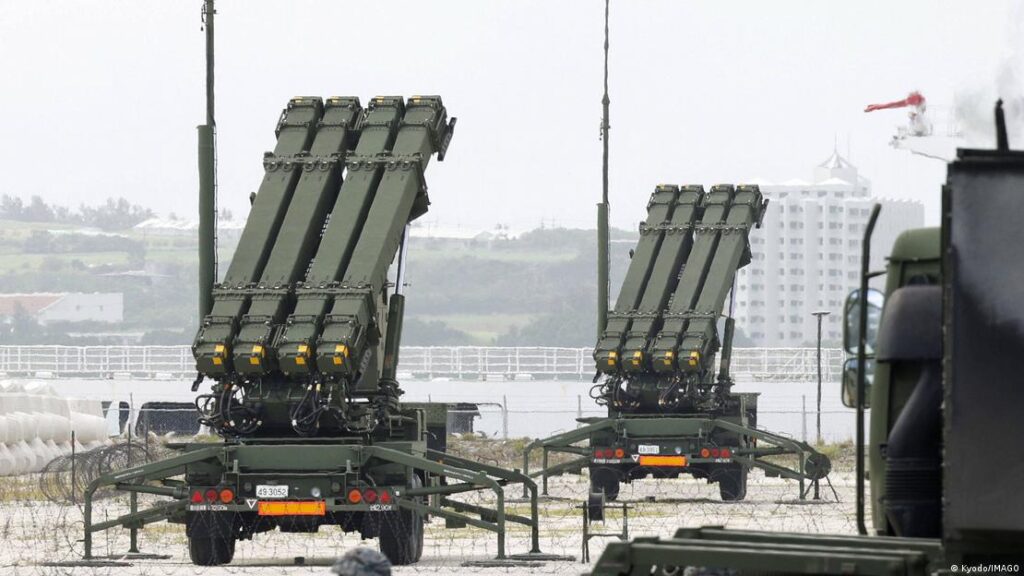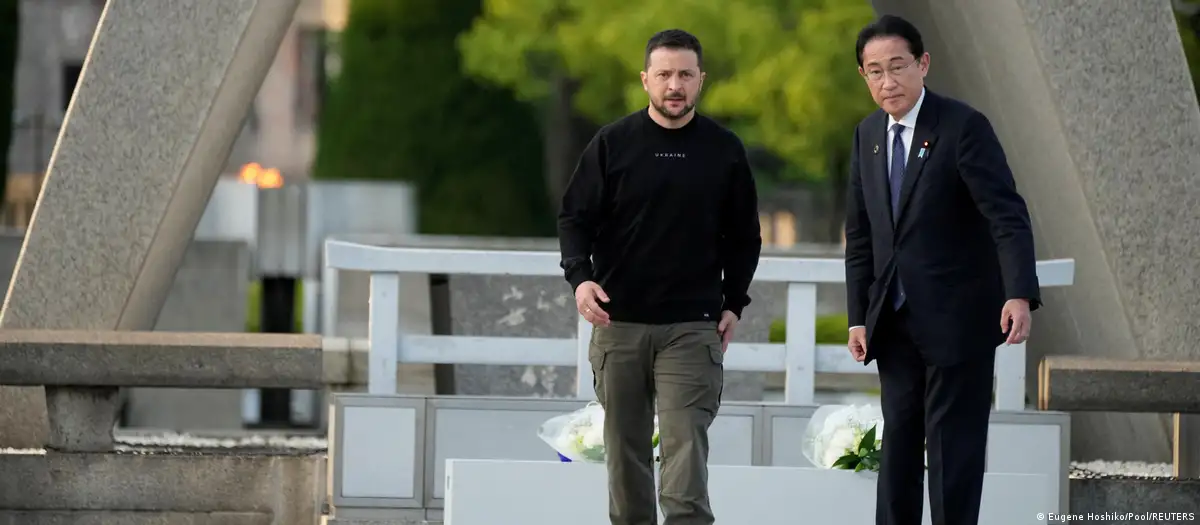In a discreet and “radical” move, the country with a pacifist tradition has been helping Kiev in the war against Russia. What is behind the alliance and to what extent has Tokyo really distanced itself from Moscow?
Amid the lack of agreement between Republicans and Democrats in the United States on a new billion-dollar aid package for Ukraine, a situation that has been dragging on for months, a new international ally has emerged, modestly and discreetly, on the Ukrainians’ horizon: Japan.
Like other Western countries, the Asian nation with a pacifist tradition has increased its share of assistance to Kiev, becoming one of its most important financiers – and even the main one in the first months of 2024 – according to the Ukrainian Finance Ministry.
According to the Kiel Institute of World Economics, in January this year Japan was sixth in the ranking of international assistance to Ukraine, amounting to 7.5 billion euros (R$40.8 billion). Adding the aid made available and promised, however, this figure would exceed 12 billion dollars (R$65.3 billion), as announced by Ukrainian Prime Minister Denys Shmygal at a conference in Japan in February.
The Japanese money helps keep the Ukrainian economy afloat – according to estimates by the Ukrainian Central Bank, the country has lost a third of its Gross Domestic Product (GDP) since the Russian invasion in February 2022.
For historical and legal reasons, Tokyo cannot supply Kiev with lethal weapons. Instead, it sends food, medicine, generators, cars, bulletproof vests and mine clearance equipment.
Indirect delivery of missiles via the US?
For Kiev, however, the most important thing is to obtain weapons. And Japan, despite its constitutional pacifism, could help. The Japanese press has reported a possible delivery of missiles produced under license in Japan for the US Patriot air defense systems, so that Washington can pass them on to Ukraine.
Representatives of the Russian Foreign Ministry reacted by saying that the presence of Japanese missiles in Ukraine would have “consequences” for relations between Moscow and Tokyo.
Atsuko Higashino, a professor at Tsukuba University, supports the delivery of missiles to Ukraine, saying that they are not “weapons to kill, but to protect the Ukrainian people”. But she says she doesn’t believe this will happen “any time soon”, since Japan, she says, has a “serious deficit” in defense systems.
James Brown, a professor at Temple University in Tokyo, is betting that Patriot missile deliveries to the US are already “practically agreed”, and that the delays are due to regulations on the Japanese side. For the Japanese government, says Brown, it is very important to ensure that its missiles don’t end up in Ukraine.

A “radical change” in relations with Russia
But why exactly has Japan become one of Ukraine’s main partners? “By helping Ukraine resist Russian aggression, Japan is thinking about how to protect the international system against a violent change in the status quo,” explains Brown. According to him, this includes “stopping similar attempts by China against Taiwan”.
The issue was the subject of talks between Prime Minister Fumio Kishida and US President Joe Biden at a trilateral Indo-Pacific summit in Washington.
For Higashino, Japan’s stance on Ukraine and Russia “has changed radically”. Whereas in 2014 the country “accepted the illegal annexation of Crimea” and “Russian propaganda”, the full-scale invasion of Ukraine changed everything – partly, she said, due to the “clear violation of the UN Charter” and the “brutality” of Russian troops in Bucharest in early 2022.
Russian gas still important for Japan
An important factor in this change in Japan’s stance towards Ukraine has been the change of leadership in the government. “Under the previous leadership of Prime Minister Shinzo Abe, Japan was very keen to get closer to Russia. It wanted to build partnerships, resolve the territorial dispute [over the Kuril Islands] and sign a peace treaty,” says Brown. “But after 2022, the Japanese government realized that these efforts wouldn’t work. The priority shifted from building a partnership with Russia to ensuring the failure of Russian aggression against Ukraine.”
Unlike Abe, Prime Minister Kishida has adopted “very comprehensive sanctions against Russia”, says Higashino. “This was unthinkable before.”
Japan, however, has not completely cut ties with Russia. This is the case in some areas of the economy, especially in the energy sector. Japanese car manufacturers have withdrawn from the lucrative Russian market, but Japan is still involved in the Sakhalin-2 oil and gas project, in which other Western companies have stopped participating. The project supplies liquefied natural gas (LNG) to Japan – the country, which has virtually no fossil fuels of its own, gets around 9% of its gas from Russia. Japan Tobacco also continues to operate in Russia.
Kiev beckons Tokyo
In October 2022, the Ukrainian parliament passed a decree supporting Tokyo in the Russian-Japanese conflict over the Kuril Islands. The decree recognizes that the “Northern Territories”, as the islands are called in Japan, “remain occupied by the Russian Federation”. A similar measure was signed by Ukrainian President Volodimir Zelenski.
*** TbDCPFYIt ***
